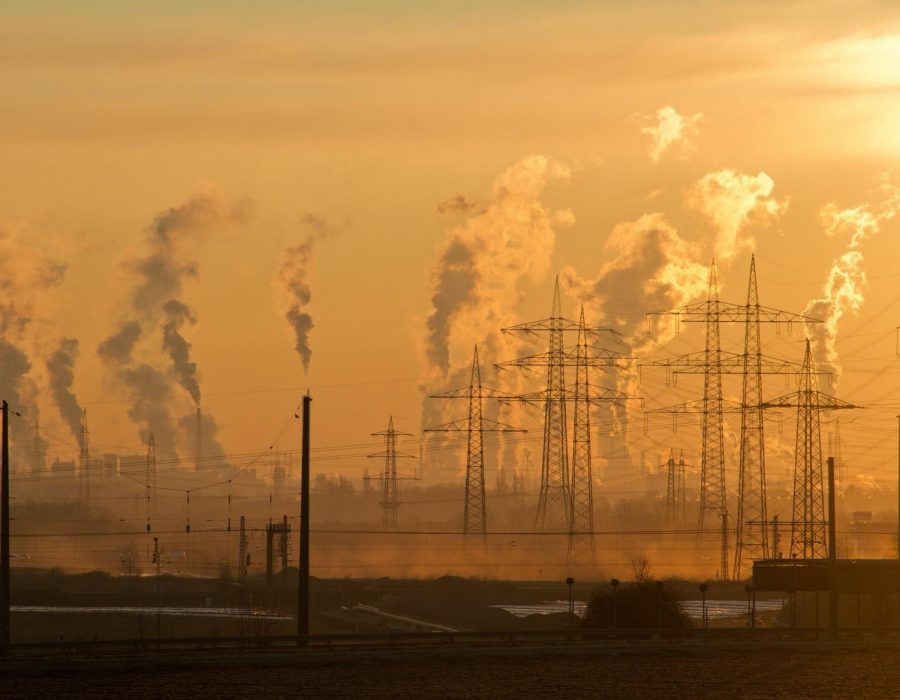Help the climate crisis by voting
Opinion columnist Brenna Wolfe discusses the recent UN Climate Report and the importance of voting to help prevent further climate change from occurring.
Oct 11, 2018
The United Nations released a climate report this week that was written and edited by 91 scientists from 40 different countries who analyzed more than 6,000 studies. They predicted a catastrophic future.
If our greenhouse gas emissions stay at their current rates, the atmosphere will warm up by 2.7 degrees by 2040. What does that mean? Our coastline will flood, intense droughts will occur, poverty will increase and wildfires, hurricanes and tornadoes will become more frequent. We are already beginning to see that future. This is going to be deadly for billions of people around the world.
Human activity has already increased the atmosphere temperature by 1.8 degrees since the 1850s. We are over halfway to the 2.7 degrees.
The report continued by discussing the greenhouse reduction pledges in the Paris Climate Agreement that Trump has pulled out of. Those pledges will not be enough to prevent 3.6 degrees of warming, which is the goal of the agreement.
How can we stop this? We have to make aggressive policy changes. Worldwide, the greenhouse pollution rates must be reduced by 45 percent by 2030 and 100 percent by 2050.
In addition, the report said that coal as an energy source would need to drop from 40 percent now to 1-7 percent by 2050, essentially calling for the elimination of coal. Renewable energy like wind and solar need to increase from 20 percent to 67 percent.
The report recommended aggressive taxes on carbon dioxide emissions. Under the Obama administration, carbon dioxide pollution was about $50 per ton and under the Trump administration, it is about $7 per ton. For the taxes to be effective on reducing greenhouse gases, the report urges for the price for a ton of carbon dioxide pollution needs to be $135 to $5,500 by 2030 and between $690 and $27,000 per ton by 2100.
According to the New York Times, “avoiding the most serious damage requires transforming the world economy within just a few years, said the authors, who estimate that the damage would come at a cost of $54 trillion. But while they conclude that it is technically possible to achieve the rapid changes required to avoid 2.7 degrees of warming, they concede that it may be politically unlikely.”
Well, what can UNI students do about this? We can vote, reduce our own waste and urge UNI to participate in more sustainable efforts.
First, all these policies that I discussed above are created and reinforced by our elected officials. We are in the middle of a climate crisis and we need to vote to save our planet!
Second, make sure that you are being critical of your own actions. Are you using 30 plastic bags every week? Are you leaving your lights and TV on when you aren’t home? Are wasting a lot of paper doing schoolwork? I am not saying be perfect, but maybe reduce your waste by simply turning off your lights when they’re not being used.
Third, we need to urge UNI to be more sustainable as an institution. There have been multiple students and groups that have urged for more sustainable practices at our university that have gone ignored.
It is great that we have an amazing recycling program, many water bottle refill stations and solar panels on the Multimodal Transportation Center. Those are amazing steps, but we can do better.
Many universities around the U.S. have completely turned to composting waste, and UNI should also make that step. It is a very doable, easy switch that can have lasting positive impacts for years to come. We should have compost bins all around the union, dining centers and convenience stores. We should eliminate plastic bags and straws from our campus. We should turn off more lights on our campus. When large organizations like UNI make these changes, they have the power to make a huge, sustainable difference. Let’s do better, UNI.
During this climate crisis, your actions are important. Please make sure that you are voting, reducing your waste and urging for positive changes in your communities.

















